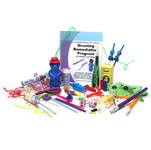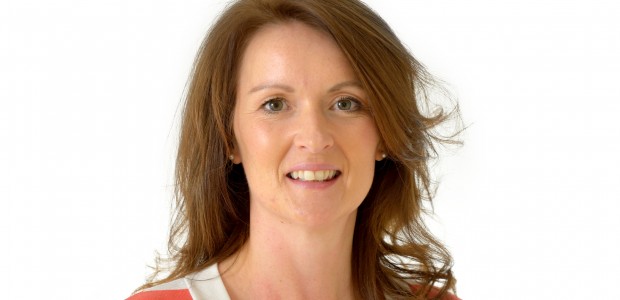Now here is food for thought…
This month many of my colleagues have been discussing the benefit and true impact of Evidence Based Practice on our profession as Speech and Language Therapists.
At our RCSLT regional hubs EBP has proven to be extremely topical, especially with the Royal College of Speech and Language Therapy (RCSLT) who are hopeful to develop a tool which all SLTS feel happy to use in demonstrating their outcome measures and supporting evidence based practice – what works and what doesn’t work.
Many services across the UK have become focused on only delivering therapy services that have a proven evidence base, which sadly means that great therapy approaches such as Talk Tools are left out on the door step, because despite it being well evidence based in the US and having many single case studies building within the UK, it is not UK evidence based as yet.
Therefore by refusing to offer clients approaches, which do not carry a UK evidence base, are we withholding very valuable therapy approaches from them and preventing informed choice?
I am very much leaning to the refreshing view of Evidence Informed Practice (EIP) or Practice Based Evidence (PBE).
Recent discussion with colleagues have been just fascinating and inspiring:
- “Just because there is no evidence does not mean that it is not true!”
- “Science does not look like that. Evidence in psychotherapy literature is that features of the therapist are more important than type of therapy programme. Competence is not about infallibility but acknowledgement and engagement with working on weakness or error.”
- “For many of us it may be difficult to find ‘evidence’ for a particular therapy approach but we have lots of ‘evidence’ to draw on regarding the physiological and psychological underpinnings of the disorders that we treat. The joy for me of being a SLT is listening to what my clients want to achieve and drawing on my theoretical knowledge (or more often, going to find theoretical knowledge!!) and planning therapy based on what the client wants to achieve and for me what I know may or may not work based on my knowledge of ‘evidence’ and also my clinical experience.”
- “Our professional skill and experience shapes what we decide to do and to use. The fact that there is some ‘evidence’ out there that shows the individual therapist matters in any intervention is absolutely great as it turns the argument about EBP completely on its head!”
Going back to the example or Oro motor / Oral placement approaches:
“There is a lot written about how they don’t work, but if the basic principles of exercise, physiology and the specific impairment that the person presents with are considered and an individual therapy programme is developed, tested, reviewed, changed etc. good results can be achieved with the right candidate. But giving someone a typed up list of facial exercises with no regard for their underlying impairment is never going to work because it isn’t going to be based on sound ‘evidence’.”
Unfortunately I think the concept of Evidence Based Practice is often used as a way of preventing access to interventions rather that facilitating access to a range of interventions and allowing healthcare practitioners to be creative (but still safe) in their work with clients.
 For example the US have fantastic findings using Talk Tools – Children with Downs syndrome do not naturally need to go on to have tongue protrusion causing problems with feeding and speech, if they had exercised the tongue efficiently during ‘normal feeding patterns’. However because the tongue is a muscle, when it is not exercised through developmental feeding patterns, it becomes big, bulky and flaccid. The talk tools approaches which support drinking from the rim of a cup and straw drinking, has seen a high percentage of children with Downs Syndrome develop excellent eating and drinking skills and significantly improved speech patterns, despite early feeding difficulties.
For example the US have fantastic findings using Talk Tools – Children with Downs syndrome do not naturally need to go on to have tongue protrusion causing problems with feeding and speech, if they had exercised the tongue efficiently during ‘normal feeding patterns’. However because the tongue is a muscle, when it is not exercised through developmental feeding patterns, it becomes big, bulky and flaccid. The talk tools approaches which support drinking from the rim of a cup and straw drinking, has seen a high percentage of children with Downs Syndrome develop excellent eating and drinking skills and significantly improved speech patterns, despite early feeding difficulties.
Further colleagues agreed that;
It is sad to read such cases of a therapist who has shared therapy duty of care with another practitioner with a child with very complex problems including dyspraxia and facial (but not oral paralysis – so no lip movement, but ‘normal’ language). The therapist had been told she couldn’t see the client any more as ‘he has only partially achieved’ the goals she had set i.e. he is not improving quickly enough for her input to continue!
To her colleague he was one of the most fascinating and rewarding children she had ever worked with; he stretched her therapeutic skills to the limit -including the dynamic of keeping him motivated and keen to continue ‘experimenting’ and in being ‘detectives’ to find out what he can do with his mouth etc. At the same time a great need continued to watch over his AAC needs and total communication skills.
The subtle adjustments which were made moment by moment during therapy to ‘shape’ his production and to help him know he’s making progress, are absolutely what therapy is all about.
Such work is being completely restricted under the oh too familiar ‘consultative model that many of our SLT colleagues are sadly familiar with. ‘ This little bright sparks contact reduced to 3 times a year!
It is a sad day for our profession when we can no longer use the skills and inspiring investigative work into each and everyone of our clients, to support them in reaching their full potential. It is a sad thought that a new generation of bright, enthusiastic young speech and language therapists may never get to experience the joy and satisfaction of real therapy and truly helping their clients achieve their maximum potential.
So an interesting thought to leave you with:

“Practice based evidence”
Many of us skilled SLTs really favour the idea of innovative practice building our evidence base, rather than our practice having to wait for the research to build the evidence before we can apply it to practice.










